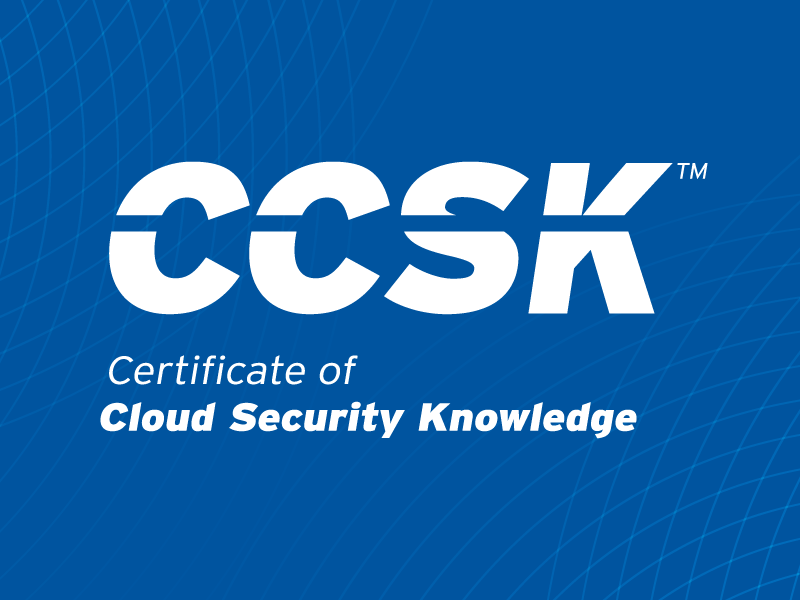Overcome Cloud Migration Challenges with Professional Cloud Services
Published 06/27/2023
Originally published by Sangfor Technologies.
Written by Nicholas Tay Chee Seng, CTO, Sangfor Cloud.
Cloud Migration Challenges are Showstoppers for Cloud Adoption
Cloud computing is a major driver of digital transformation. The global cloud computing market is expected to grow from USD$272 billion in 2018 to USD$623 billion USD in 2023 at a CAGR of 18%. Despite such rapid growth, many organizations are yet to fully realize the potential of the cloud, as migration remains a significant challenge. Uncertainty about how and what to migrate, concerns about cloud costs and data security, and internal resistance to change are major obstacles to cloud migration. Professional cloud services are designed to help organizations unlock the full potential of the cloud. They provide comprehensive support in planning, delivering, and managing every step of the cloud migration journey. Their expertise enables organizations to optimize their cloud utilization, control costs, enhance data processing efficiencies, and strengthen cloud security.
The Steps of Cloud Migration & Their Challenges
Cloud migration is the process of moving data, applications, and IT infrastructure from an on-premises data center to a cloud-based platform. It involves multiple steps, from the initial assessment and planning stage to continuous optimization and operations post-migration. However, due to the lack of in-house technical expertise, most organizations often fail to define a clear cloud migration roadmap. This impacts their ability to simplify, automate, and maximize the benefits of the cloud. As a result, they struggle to unlock the business values brought about by increased IT efficiencies. Professional managed cloud services providers offer expert guidance, best practices, and technical expertise to help organizations overcome major obstacles.
Let’s explore the critical steps of the cloud migration process, the challenges associated with each step, and how a professional cloud services partner can address these challenges.
- Assessment & Planning: This stage requires laying the groundwork for the migration. It includes identifying the workloads to be moved to the cloud, assessing their dependencies and cloud-readiness, planning the migration process by assessing infrastructure sizing, migration time, and any associated downtime, and developing a clear roadmap for the entire migration. This stage is often the most challenging for organizations due to the lack of expertise. A professional cloud services provider (CSP) with expertise in cloud migration can help in this critical stage.
- Choosing a suitable cloud provider: Today, there are several global hyperscaler CSPs and many local or regional CSPs. Organizations are therefore faced with the tough decision of selecting the right cloud provider that caters to their current and future IT needs. However, what should be the basis of this selection? This is a question that plagues many organizations in their cloud migration journey. Having a professional services organization with in-depth knowledge and expertise to advise you on the best-suited cloud model is highly advantageous in this process.
- Estimating migration costs: Although migrating to the cloud improves performance and cost-efficiency in the long term, there are immediate costs associated with the migration. These include investments in migration tools, bandwidth costs for data transfer, building availability and reliability, fine-tuning applications for optimal performance, indirect costs for software licenses and maintenance, and other expenses. Estimating these costs at the cloud migration planning stage can be a challenge. Therefore, it is necessary to identify and engage with a professional cloud services partner with expertise in cloud migration to help address these concerns.
- Deciding the type of cloud migration strategy: Organizations can adopt various strategies for migrating to the cloud, ranging from a lift-and-shift approach to re-platforming or rebuilding on the cloud platform. Choosing the appropriate strategy for each workload, application, and database is a challenge that most organizations are not equipped to deal with. Therefore, selecting the right migration strategy is paramount for a successful migration.
- Addressing the skills & knowledge gap: Cloud migration requires people with the right skills to plan, implement, and manage an effective migration. However, such talent is in very short supply, and most organizations lack the in-house knowledge and capabilities to carry out a migration. This is where a professional cloud services provider comes in and does the heavy lifting.
- Ensuring data security & compliance: Security and compliance concerns are critical issues faced by organizations during cloud migration. Preventing data loss or leakage during migration and establishing the right security configurations to meet compliance requirements can be overwhelming for most organizations. Engaging a professional services organization with experience dealing with such issues for cloud migrations can simplify this process.
- Solving Post-Migration Challenges in Application Performance: Ensuring consistent application performance and availability across device types and locations, particularly during peak loads, can be a challenge for cloud management teams. This requires automating infrastructure provisioning and continuous monitoring. In-house IT teams often lack the time and skill sets to handle these tasks effectively. A managed services provider can relieve this burden from overworked IT teams.
- Optimization & Scaling: Once workloads have been moved to the cloud, both the applications and the underlying cloud infrastructure need to be optimized for performance and availability. Applications also need to be scaled up or down according to usage changes. Failure to automate and monitor this process can result in time-consuming tasks, poor application experience, and higher costs. Including these aspects in the SLA with a managed cloud services provider can help overcome this challenge.
- Managing Security & Risks: Maintaining and managing the security posture in the cloud environment in an ever-changing threat landscape is burdensome on IT teams, especially if they lack the required skills to tackle new-age threats. This is where a managed cloud service provider with expertise in cloud security can help ensure security and mitigate risks.
- Managing Cloud Operational Costs: Hiring and retaining skilled resources to manage and maintain cloud deployments can be expensive for many organizations, especially SMEs. These expenses add to the Total Cost of Ownership (TCO) of cloud deployments, pushing up the overall cost. Outsourcing the maintenance and management to a managed service provider not only saves costs but also ensures reliability.
Unlock the Full Potential of Your Cloud Journey with a Professional Cloud Services Partner
Organizations across all industries are turning to cloud computing to accelerate their time to market and reduce TCO with agility and scalability. Migrating to the cloud is only the first step in the cloud journey, as effectively managing and maintaining the deployment is another task altogether. Partnering with the right cloud provider is critical to your organization’s success in a cloud migration that aligns with your future business roadmap. By leveraging professional cloud services, you can focus on creating business value and hitting business objectives, leaving the experts to take care of managing all the operational aspects of your cloud.
About the Author
Nicholas has an extensive career spanning over 20 years, during which he has played a major role in the ideation, formulation, and co-creation of new cloud solutions for both enterprise and government sectors. His expertise spans across multiple domains including Cloud, Data Centre, Network & Connectivity, which he blends to support organizational Digital Transformation & Modernization and Industry 4.0, including 5G. His proficiency is backed by various sales and pre-sales certifications from key global technology firms such as Sangfor, AWS, Microsoft Azure, Dell EMC, Google, IBM, NetApp, Oracle, Red Hat, and VMware, enabling him to adopt the latest global technology trends, especially in the cloud domains.
Unlock Cloud Security Insights
Subscribe to our newsletter for the latest expert trends and updates
Related Articles:
Jurassic Access: What Jurassic Park Teaches Us About Identity and Access Management
Published: 08/01/2025
What is Identity and Access Management [2025 Guide]
Published: 07/08/2025
How Mature is Your NHI Security Program?
Published: 07/07/2025
Why Do Organizations Migrate to the Public Cloud? Hint: It Isn’t About Cost Anymore
Published: 06/26/2025





.png)



